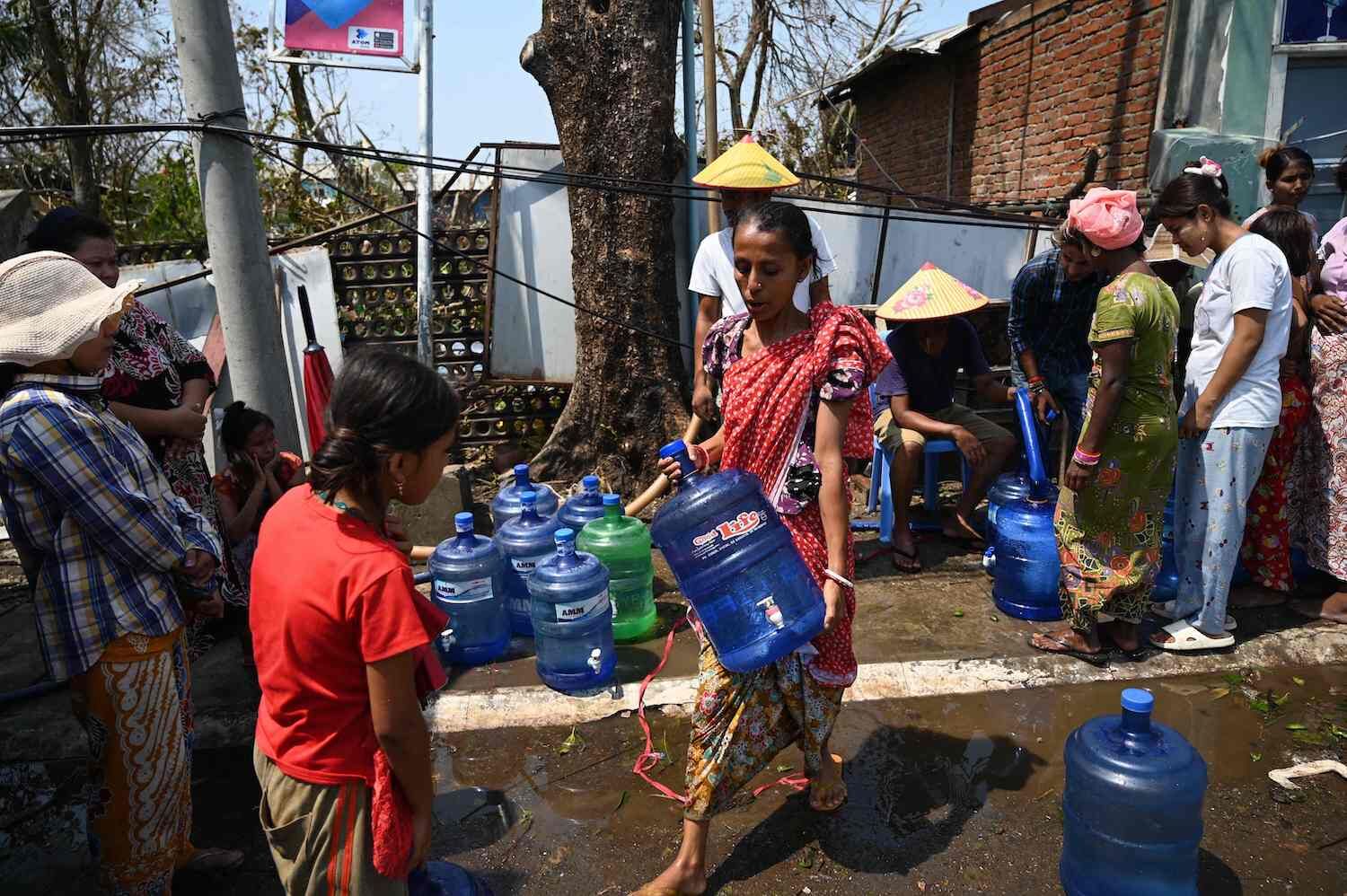Cyclone Mocha aftermath: Myanmar residents queue for aid as UN negotiates access

In the aftermath of Cyclone Mocha, which swept through Myanmar and Bangladesh with winds of up to 195km per hour, residents of Sittwe, the capital of Rakhine state, are facing severe shortages of rice and drinking water. The United Nations is currently in talks with the Myanmar junta to gain access to the affected areas.
The cyclone has claimed at least 81 lives across Myanmar, with local leaders and officials providing statements to AFP journalists and state media. In Sittwe, residents have been forced to queue for small tanks of drinking water after the cyclone halted production at the city’s purification plants. The city, with a population of around 150,000, is struggling to meet the basic needs of its inhabitants.
Ko Htun, a resident of Sittwe, said…
“We stored some water but after two days there is none left in our home.” He added, “Rich people can afford to buy water but poor people can’t.”
The World Food Programme has been distributing rice at a monastery in the city, with hundreds of bags of rice airlifted to Sittwe. According to the Global New Light of Myanmar, a naval vessel carrying rice, communication equipment, and other aid is expected to arrive shortly.
The United Nations resident and humanitarian coordinator for Myanmar has warned of a “humanitarian catastrophe” unfolding in the country. Negotiations with Myanmar’s military junta for access to cyclone-affected areas are ongoing, says the UN Office for the Coordination of Humanitarian Affairs (OCHA). However, an OCHA spokesperson has not provided details on the discussions or whether access has been granted for UN teams to visit the affected areas, including camps housing displaced Rohingya.
State media reported on Tuesday that…
“Offers from the international community for providing aid have been accepted.”
However, the Global New Light of Myanmar also stated that “relief and rehabilitation tasks must be done through existing united strength.”
In 2008, Cyclone Nargis killed at least 138,000 people in Myanmar, with the junta in power at the time accused of blocking emergency aid and initially refusing to grant access to humanitarian workers and supplies. This led to increased suffering for the approximately 3.4 million survivors displaced by the storm, as concluded by independent reports.
Rakhine state is home to around 600,000 Rohingya, who are often seen as interlopers from Bangladesh and are denied citizenship and freedom of movement. The storm has severely impacted camps housing displaced Rohingya around Sittwe, with residents being swept away and homes destroyed.
The leader of one camp outside Sittwe said on Wednesday that they were still waiting for help from outside.
“No organisation nor the government aid arrived to us yet because the bridges on the way to our camp are broken,” he said.
Authorities have advised them to boil any water they can find and drink that, with the camp leader stating, “We might be able to hold on for two days more.”
Latest Thailand News
Follow The Thaiger on Google News:


























